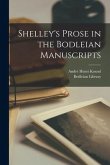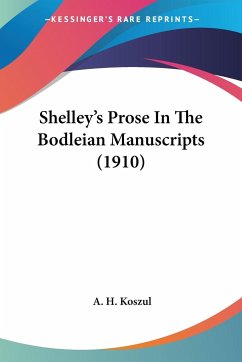Working from the earliest surviving draft of Frankenstein, Charles E. Robinson presents two versions of the classic novel-as Mary Shelley originally wrote it and a subsequent version clearly indicating Percy Shelley's amendments and contributions. For the first time we can hear Mary's sole voice, which is colloquial, fast-paced, and sounds more modern to a contemporary reader. We can also see for the first time the extent of Percy Shelley's contribution-some 5,000 words out of 72,000-and his stylistic and thematic changes. His occasionally florid prose is in marked contrast to the directness of Mary's writing. Interesting, too, are Percy's suggestions, which humanize the monster, thus shaping many of the major themes of the novel as we read it today. In these two versions of Frankenstein we have an exciting new view of one of literature' s greatest works.

Nicht mal eines Namens wurde das Geschöpf für würdig befunden, immer heißt es nur die Kreatur oder das Monster, Frankensteins Monster. Der Doktor Viktor Frankenstein hatte einen perfekten künstlichen Menschen schaffen wollen, aber was bei seinem Experiment herauskam, war so abschreckend, dass es nirgends zugehörig sein durfte. Der absolute Outsider.
Wenn er in ein Dorf kam, fielen die Frauen in Ohnmacht, Steine wurden geschleudert. Das naive und empfindsame Monster floh aufs Land und erklärte der menschlichen Spezies den Krieg. Mary Shelleys „Frankenstein“, erschienen 1818, ist ein revolutionäres Buch, das von Identität und Freiheit handelt. Zur Kultfigur wurde das Monster 1931 durch den Film von James Whale – der als Homosexueller ums Außenseiterdasein wusste. Da fingen die Menschen an, sich ihrer eigenen Monstrosität bewusst zu werden. Und so etwas wie sympathy for the monster zu empfinden.
GÖT
Mary Shelley: Frankenstein. dtv, 304 Seiten, 8,90 Euro.
DIZdigital: Alle Rechte vorbehalten – Süddeutsche Zeitung GmbH, München
Jegliche Veröffentlichung und nicht-private Nutzung exklusiv über www.sz-content.de








